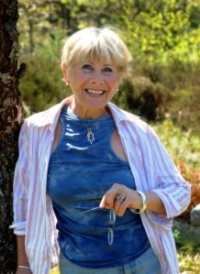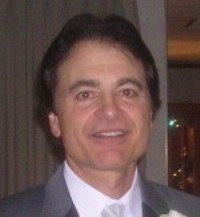.
.
.
.
Harder Bop
A low tide
in South Carolina recedes
like the end of a Sonny Rollins solo
until
sand leaves its resume in the inlet
or until
pelicans take the remaining choruses
out where the ocean says I am the God
of water being loaded into more water
thou shalt not have false gods before Me
out where the mackerel are feeding
on schools of menhaden
looking up at the sky
smiling
even though they know jazz is no laughing matter
.
by John Stupp
.
.
I Need a Blues Name
Maybe Hambone Mortimer Johnson the third
or Rickets-teeth Perkins outta deep under
the Mason Dixon line and coming to you
with a whole wail-full of drowning sound..
Hambone Mortimer Johnson the Third,
that’s me on the saxophone tearing up
late night, putting it back together
in G minor with a grace that comes
outta nowhere sitting on the front porch
with nothing to do and nobody else around.
.
by Ed Ruzicka
.
.
Evidence
Walking in rhythm, this day in May,
singing old songs, brand new way!
Moving in sound, Brand new day,
I’ve got evidence, to prove my case,
There are people, gathered here today,
they were lost in a place and now have found their way,
I’m just a singer of the song, but I don’t got nothin’ to say,
Just some evidence, to prove my case.
Smile for the camera
Cry for the press,
file it under, “Damsel in distress,”
Heart for the homeless,
Clean up this mess,
I’m here only to confess,
I speak only in jest.
Talkin’ bout circles, paid in full,
Walking pneumonia, Mr. Wonderful.
Fade in the darkness, cut to the chase,
I’ve got evidence to prove my case.
Walkin’ in Rhythm, this day in May,
Singing an old song, in unusual ways,
Heading downtown, another time, a different place,
I got up to wash my face. A pretty smile on a beautiful face,
is the evidence to prove my case, that I’m in love.
.
by Richard Beattie
.
.
I Used To Be
………………………(an aging jazz pianist/singer observes)
I used to be interested in voicings:
No longer or, not anymore.
I’m much more primitive and noisy,
You can call me grandma Moses,
Taking handicaps, the wonders and the curiosities
Of change and how they come with age.
I used to be concerned with beauty.
Now I’m not so much. See it as a vanity.
My touch at the piano of no interest and importance.
So much seems of little relevance
With the advancing years.
My ears, of course,
The ones alert to harmonies, to melodies
It pleases me to feel
That they hear, can still
Put flesh on, even broaden or elaborate,
But in a way that comes from temperament and talent mine.
I may not shine the way I used to but,
I’m getting used to that:
The ups and downs of being flat,
The unforeseeable I cannot formulate
But yet anticipate in all its glory,
It becoming an old story.
There is no ‘used to be’
There’s only now and me
And doing things creatively.
That’s it!
.
by Arlene Corwin
.
.
Strong with Soul
She swelled
of love and perfection
her face soft
as if a pearl
settled below her skin
the curve of her hand
commanded the
microphone
into alive
ocean waves of verse
rolled from lips
wet with thought
as a message
strong with soul
released from her
the pain she suffered
becoming cool and full
washing the crowd
in tears turned
into jazz
.
by Roger Singer
.
.
Soundless Song
With a tune in his heart
he attempted to improvise,
yet harbored little hope
that the buried, melodious lick
would persist beyond himself,
though it did create
a momentary paradise
that embellished
the long afternoons of summer
adorned with the flow of golden greens
against the sky’s persistent blue.
The thought that this idea
would not find a home,
and perhaps sink
into the lake of exactitude,
correctness and all considerations
beyond the aesthetic realm,
slightly disheartened him,
though, in the confines of his room,
it found an imagined place
where someone might accompany him,
a pianist perhaps, maybe the Duke himself
or the Count for whom
the uplifting stanza may instill
a momentary intrigue
and gleefully they would duet
through the night
having succeeded in his own dimension,
at his own pace,
the satin of his song never lost.
.
by Michael Keshigian
.
.
Adrift in Evening
twilight fades with grace and elegance
of muted trumpet solo’s last notes
drifting into memory for example
the evanescent sorrow of notes
blown by Miles Davis using a Harmon
mute where the final sounds are
a mere whisper yet contain a lifetime
of grief hope and wistful surmise
so too evening’s last wisps of light
contain long departed ocean voyages
athletic and academic feats now
barely credible and vanished lovers
a hint of their smiles the sound
of their voices in night’s solitude
caught in last echoes of birdsong
and the lost beauty left behind by Clark Terry
Dizzy Gillespie and Miles always Miles Davis
.
by Michael L. Newell
.
.
_____
.
.

.
John Stupp’s third poetry collection.Pawleys Island was published in 2017 by Finishing Line Press. His manuscript Summer Job won the 2017 Cathy Smith Bowers Poetry Prize and will be published in 2018 by Main Street Rag. He lives near Pittsburgh, Pennsylvania. From 1975-1985 he worked professionally as a mediocre jazz guitarist.
.
___
.

.
Ed Ruzicka has published one full length volume, “Engines of Belief.” His poems have appeared in the Atlanta Review, Rattle, the New Millennium Review, and Chicago Literati, as well as other literary journals and anthologies. Ed lives in Baton Rogue, LA and is an occupational therapist. More works can be found on his website, edrpoet.com.
.
___
.

.
Richard Beattie is a writer, journalist, composer and lyricist. Beattie grew up in New York where he was in musical theater from an early age. He learned his trade on famous streets; Broadway, Madison Avenue, and Bleeker Street. In 1978, he moved to Poet’s Row in the Capitol Hill neighborhood of Denver, where he thrived while working with artists from jazz bands. He is currently a reporter and news anchor at KVOR in Colorado Springs, and curator for the Library of Creative Harvest.
.
___
.

.
Arlene Corwin has been a jazz musician since 1951, and continues to work as a pianist/singer in Sweden, where she now resides. Her mother owned a jazz club with Slim Gaillard in Hempstead, Long Island called The Turf. She has published 17 books of poetry.
.
___
.

Roger Singer is a prolific and accomplished contributing poet who we have proudly published for many years. Singer has had almost 800 poems published in magazines, periodicals and online journals — 400 of which are jazz poems — and has recently self-published a Kindle edition of his book of jazz poetry called Poetic Jazz.
“Jazz poetry flows out with such ease,” Singer writes on his blog. “The people and places, the alleys and sawdust jazz clubs. The stories that bring jazz alive with horns and voices, from sadness and grief to highs at midnight and love gone wrong. The jazz is within us all. Find your poem and feel the music.”
.
___
.
.

Michael Keshigian’s eleventh poetry collection, Inexplicable was released in November, 2016 by Black Poppy Review. Other published books and chapbooks:Beyond,Dark Edges,Eagle’s Perch,Wildflowers,Jazz Face, Warm Summer Memories, Silent Poems, Seeking Solace, Dwindling Knight, Translucent View. Published in numerous national and international journals, he is a 6- time Pushcart Prize and 2-time Best Of The Net nominee. His poetry cycle,Lunar Images, set for Clarinet, Piano, Narrator, was premiered at Del Mar College in Texas. Subsequent performances occurred in Boston (Berklee College) and Moleto, Italy. .Winter Moon, a poem set for Soprano and Piano, premiered in Boston.…(michaelkeshigian.com).
.
___
.
Michael L. Newell is a retired English/Theatre teacher who lives on the south-central Oregon coast. He lived abroad for 23.5 years. After too many years of living in desert lands, he is grateful for the trees, hills, rivers, and rain of Oregon.
.
.
.

































This is a nice handful of jazz poems, well worth the time spent reading all of them. I am particularly impressed by the wit and imagination and sense of humor found in the poems by John Stupp and Ed Ruzicka.
No matter how many times you fail, you must face life and be full of hope